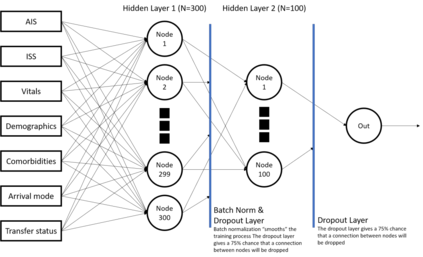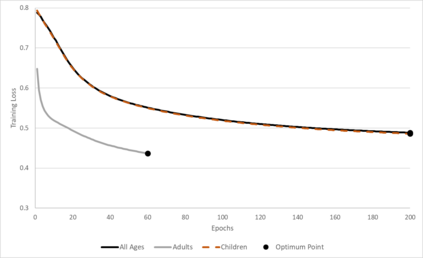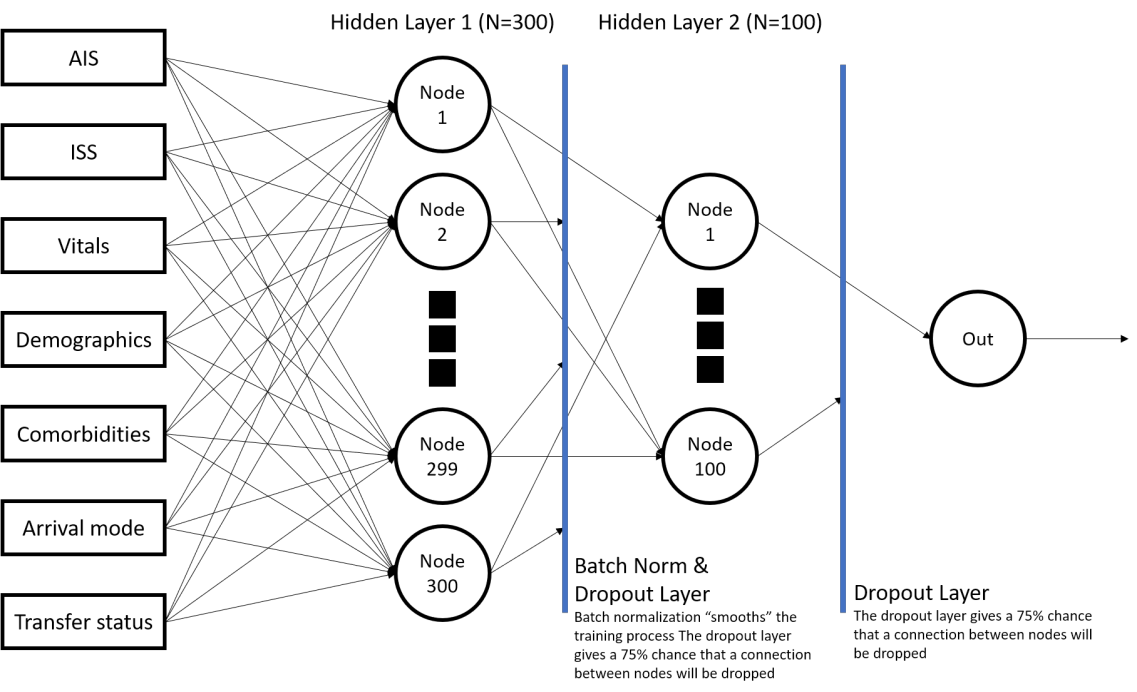Trauma mortality results from a multitude of non-linear dependent risk factors including patient demographics, injury characteristics, medical care provided, and characteristics of medical facilities; yet traditional approach attempted to capture these relationships using rigid regression models. We hypothesized that a transfer learning based machine learning algorithm could deeply understand a trauma patient's condition and accurately identify individuals at high risk for mortality without relying on restrictive regression model criteria. Anonymous patient visit data were obtained from years 2007-2014 of the National Trauma Data Bank. Patients with incomplete vitals, unknown outcome, or missing demographics data were excluded. All patient visits occurred in U.S. hospitals, and of the 2,007,485 encounters that were retrospectively examined, 8,198 resulted in mortality (0.4%). The machine intelligence model was evaluated on its sensitivity, specificity, positive and negative predictive value, and Matthews Correlation Coefficient. Our model achieved similar performance in age-specific comparison models and generalized well when applied to all ages simultaneously. While testing for confounding factors, we discovered that excluding fall-related injuries boosted performance for adult trauma patients; however, it reduced performance for children. The machine intelligence model described here demonstrates similar performance to contemporary machine intelligence models without requiring restrictive regression model criteria or extensive medical expertise.
翻译:创伤死亡是由许多非线性依赖性风险因素造成的,包括病人人口统计、受伤特征、所提供的医疗护理和医疗设施的特点;然而,传统方法试图利用僵硬的回归模型来捕捉这些关系。我们假设,基于转移学习的机器学习算法能够深刻理解创伤病人的状况,并准确确定有高死亡率风险的个人,而不必依赖限制性回归模型标准。匿名病人访问数据来自国家创伤数据库的2007-2014年。具有不完整生命力、未知结果或人口数据缺失的病人被排除在外。所有病人访问美国医院,以及追溯性检查的2 007 485次相遇中,8 198次导致死亡(0.4%),机器情报模型的敏感性、特性、正值和负值以及Matthews Correlation Covaly。我们的模型在特定年龄的比较模型上取得了类似的表现,同时应用到所有年龄都非常普遍。我们发现,除了与下降有关的伤害之外,所有病人的症状都提高了工作表现;然而,它降低了儿童的工作表现模式。机器情报模型在这里说明的是,要求具有类似限制性的模型。






